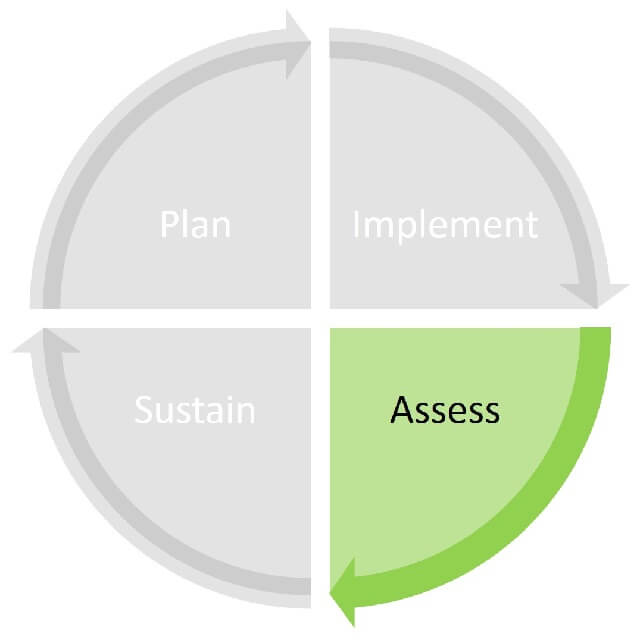Quality of Peer Support Services

Program leaders and staff can look at a range of program activities to assess the quality of the program. Quality may be defined by how well the service is meeting the intended effect described by the program. Some programs continuously assess their services.
Examples of what to assess include:
- How the support activities are being conducted.
- Are participants satisfied with their ‘match’ with a peer supporter?
- Do the participants feel that the program has helped them? In what ways?
- How involved with the program do participants feel?
- What activities or features do participants find most helpful?
- Ideas on how to improve a program and its services.
- Have there been specific and measurable improvements in quality of life indicators, adherence to treatment, loss of weight, self-image, etc.?
The information above may be collected from program participants through surveys, short feedback forms, listening sessions, random phone calls, or unplanned visits to the program. Participants may provide informal feedback to group leaders or staff, but it is also helpful to have formal feedback.
In health care organizations where data is maintained on patients, databases can serve as a source of information and show the clinical impact the program is having on peers, such as re-hospitalization rates. Feedback from clinicians who see patients in the program can also be helpful.
Both program participants and peer supporters need a mechanism to share what was helpful, and share any complaints and ideas to further improve services. For participants, this can occur while receiving peer support. The input from either the participant or supporter can help improve how peer support is provided (for example, a peer may be re-matched with another supporter). They can also be surveyed once they finish the program (what was most helpful?).
Example: At P2P USA, the program leader calls the parents (the program participants) and the peer supporter they have been connected with two weeks after making the match to determine whether both sides are satisfied and feel that the connection is helpful. If concerns are raised (for example, the peer supporter lives in a different State from the parents and is not familiar with the services within that State), then another match is made (if possible).
When peer support services are being provided, program leaders need to assess the performance of the peer supporters in the program and provide guidance as needed. Performance checks allow a program to assure participants and other key stakeholders that the program is providing the highest quality of support possible. Because peer support programs sometimes involve emotionally difficult topics, performance checks offer an opportunity to find out whether a supporter is coping well with their work, or if they are becoming overly stressed or emotional. If problems arise in any of these areas, supporters need an easy and quick way to report concerns to the person coaching or supervising them.
Updated: March 2018
